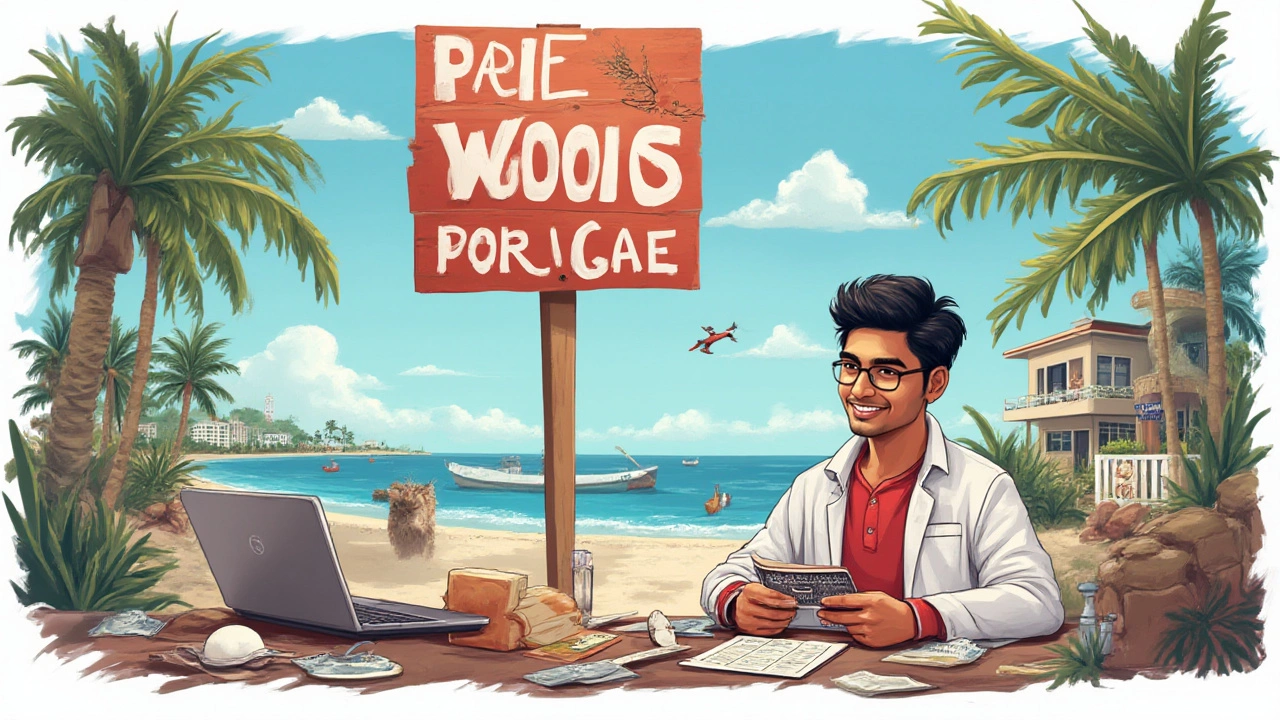Sunshine, sandy beaches, and palm trees—on the surface, the lure of selling homes in Florida seems unbeatable. But here’s a shocker: Florida has more than 220,000 active licensed real estate agents, a number that dwarfs most other states. There’s not just sun here, there’s a wild market where fortunes are made—and lost—every single year.
The Real State of Florida’s Real Estate Market
Take a look at the numbers—Florida’s property market is one of the craziest in the country. Home prices have soared by over 70% just since 2020 in places like Miami, Tampa, and Orlando. Houses can go under contract the same day they hit the market in some zip codes. Even rentals have seen double-digit percentage gains almost every year since the pandemic started.
That’s not just hype; it’s cold, hard data from the Florida Realtors Association. Between 2020 and 2025, the average home price statewide jumped from about $265,000 to well above $450,000. Miami topped that, with median listing prices at $600,000 by summer 2025. Meanwhile, rental demand isn’t cooling off—vacancy rates in large cities are lower than 4%.
If you think it’s all about beach condos and retirees, think again—newcomers from New York, California, and even Europe are buying up homes, driving prices higher in cities that most Floridians used to consider sleepy. Remote work opened the floodgates, but now, investors, snowbirds, and digital nomads keep pushing demand up.
Here’s a little real estate twist: not every market in Florida is blazing hot. Rural areas and some suburbs still have modest price gains. But the demand for skilled, connected, hardworking local agents has never been greater in the big metros. Competition, though, is its own wild animal here. You're not just up against your neighbor—you’re going head-to-head with thousands of agents literally lining up for every potential seller or buyer.
| Florida Real Estate Stats (2020-2025) | 2020 | 2025 |
|---|---|---|
| Median Home Price | $265,000 | $455,000+ |
| Active Real Estate Agents | 180,000 | 220,000+ |
| Days on Market (avg.) | 52 | 29 |
| Average Rent (Miami 2BR) | $2,100/mo | $3,200/mo |
So before you even step into this industry, you need to know: hot markets mean higher prices and faster deals, but also cutthroat competition. Does that juice your ambitions or give you cold feet?
The Upsides: Why Florida Real Estate Is a Draw
Let’s talk money—or at least potential money. The average income for agents in Florida is around $62,000, but that’s only part of the story. Top sellers easily rake in six figures, and the best of the best (think celebrity agents on TV) might clear $500,000 a year or more. Of course, those “top” agents represent maybe 5% of all license holders.
What keeps so many people signing up for this career? Flexibility is definitely one perk—nobody is clocking your hours. You can show a condo at 10 PM or answer texts at the beach. If you plan your schedule well, it almost feels like you run your own business.
Another obvious draw is lifestyle. The Florida sun doesn’t just sell houses—it keeps agents in a good mood, too. If you’re the social type, love networking, enjoy exploring neighborhoods (and don’t mind driving in traffic), you’ll thrive. You get to meet every kind of person—retirees buying their last home, families looking for schools, or young remote workers ready to rent their first apartment near the beach.
Here’s a useful tip: specialize. Don’t try to sell everything to everyone. Some agents focus only on high-rises, golf communities, or even vacation rentals. Others carve out a niche with first-time buyers, relocators, or luxury homes. Pick an area with ongoing demand—South Tampa, Brickell, Winter Park—and get to know it better than anyone. This targeted approach can set you apart from the endless wave of rookies.
You also get access to serious tech—most brokerages hand you CRM platforms, digital marketing tools, and automated listing alerts from day one. That gives even new agents a shot at making real money, as long as they hustle and follow up relentlessly.
- Tip: Chat up experienced agents at open houses or networking events. Their insights can shortcut typical rookie mistakes.
- Tip: Focus on relationships, not just transactions. Referrals from past clients pay off big—up to 30% of top agents' business comes this way.
Got the grit for high rewards? Then the upside is clear: Florida’s got the clients, the pace, and the wild price swings to make realtors big earners—if you last.

The Downsides: What Most Don’t Tell You About Being a Realtor Here
Okay, time for some tough reality. Did you know nearly 85% of Florida real estate agents quit or go inactive within five years? That’s because most newcomers underestimate just how fierce this business can get.
Here’s the thing: you only get paid when you close deals. No base salary, no cushy benefits—what you close is what you take home. In slow months, some agents don’t sell a single property. And Florida’s weird seasonality? Expect more deals in spring and winter (thanks, snowbirds), and some dry spells in hurricane season or summer when many folks leave town.
Here’s what eats up rookies: startup costs and licensing. Just to get your Florida real estate license, you’ll shell out $300–$600 for courses and testing. Joining a brokerage? Expect fees. MLS access? More fees. Business cards, lockboxes, and ads? You get the picture. Some folks spend $2,000–$3,000 before they see their first commission check.
Now, as for competition: there’s always a seasoned pro with stronger client lists, deeper pockets, or better connections. If you don’t know how to work leads, follow up, or market yourself online, you’re dead in the water. In hot markets, it’s common to see the same properties shown by ten different agents. How do you stand out?
The emotional grind is real, too. Deals die all the time—inspection fails, financing falls through, or sellers get cold feet. If you can’t handle a breakup text, real estate will test your patience every week.
Florida realtors also take on risk: angry clients if deals fall through, legal pitfalls (don’t give legal advice, ever), or even hurricanes suddenly wrecking a sale or closing process. And with interest rates jumping from 3% to near 7% in just three years, buyers can vanish overnight. That rollercoaster isn’t for everyone.
- Tip: Don’t put all your eggs in the high-end basket. Mix price points—steady mid-market sales keep food on the table between those big, elusive luxury deals.
- Tip: Use every free tool—Zillow, Realtor.com, Instagram—to promote listings. The agents who don’t embrace social media get left in the dust here.
If you’re risk-averse or need a steady paycheck, this job can turn from dream to nightmare real fast. Just because Florida’s market is hot doesn’t mean you get a slice of the pie without sweat—and smarts.
Licensing, Training, and Surviving Your First Year
You can’t sell so much as a condo here unless you’re officially licensed. Florida requires a 63-hour pre-licensing course approved by the state (usually takes 4–6 weeks), passing a state exam, fingerprinting, and background check. Think you can guess the test answers? Nearly half fail on their first try. Prepare—don’t wing it.
Once licensed, you’ll have to hang your license with a broker. Some brokerages are national giants; others are mom-and-pop shops. Each has its own fees, commission splits, support, and training. The rule of thumb: don’t chase the biggest commission split right away. New agents need mentorship more than pennies.
Here are the true rookie traps: thinking your friends and family will all buy from you (they won’t, at least not at first), blowing your budget on ads, or spending weeks designing a business card instead of calling leads or hosting open houses.
What works in year one? Shadow as many experienced agents as you can. Beg to sit in on closings, home inspections, even tough client calls. The more you absorb about paperwork, negotiation, and client hand-holding, the faster you’ll ramp up to your first sale.
Florida brokerages often require new agents to attend in-house boot camps, daily team meetings, and networking events. If it feels like social overload, remember: these are the people who can refer you business and answer your frantic questions at 10 PM.
Your first year is about survival. Most agents struggle to close even two deals in year one. Some make nothing at all. But those who hustle—working nights, weekends, and holidays, chasing rental leads, or doing grunt work for bigger teams—stand the best chance of lasting.
- Recommended read: "The Millionaire Real Estate Agent" by Gary Keller—many Florida realtors swear by it.
- Tip: Never count your commissions until after closing. Deals collapse at the finish line more often than you’d like.
Survive year one, and your odds of earning rise fast. By year three, agents with a good reputation and deep contacts can build a serious, repeat-based business. But it isn’t easy money. You’ll earn every dollar with yard signs, long phone calls, and late-night contract edits.

Tips from Florida Realtors Who Made It (and Why They Stay)
Ask top earners what keeps them in the Florida real estate game. Answers range from adrenaline rushes on closing day to the deep satisfaction of helping new arrivals find their dream home. But they’ll also tell you their best moves:
- Follow up with everyone. Agents who text updates, remember birthdays, and reach out months after a deal build loyalty (and referrals).
- Be the local expert. Know not just the median home price, but what new coffee shop is opening, how the school ratings changed, or when hurricane season usually gets wild. Clients crave inside info.
- Invest in yourself. Top floridian agents pay for better headshots, pro websites, and real digital marketing. Their business cards don’t look like cheap flyers.
- Don’t be afraid to start with rentals. In South Florida, more than 40% of the population rents. Landing renters can lead to future buyers, and landlords love a savvy agent.
- Always expect the unexpected. Deals can die for silly reasons. The best stay calm, adapt, and always have a backup plan.
One Miami Beach agent explained that her best referral source is dog parks. She chats up pet owners, swaps market gossip, and quietly builds connections. Another in Tampa spent 18 months focusing entirely on first-time buyers, helping immigrants navigate financing hurdles. Both stuck to specialties, kept their pipeline packed, and swear by systems (those CRM reminders are gold).
And don’t underestimate the lifestyle perks—yes, the sun is that good, and many agents block off a couple hours each afternoon for paddleboarding, tennis, or just hitting a favorite taco joint with friends. Work hard, play hard is real in Florida real estate.
The biggest lesson: adapt or get left behind. This isn’t the same housing market as it was pre-pandemic. Virtual showings, drone tours, and digital closings are now the norm. Top agents keep learning, experimenting, and ditching what doesn’t work.
So, is it worth it to be a realtor in Florida? If you love variety, crave a challenge, and have the drive to market yourself, the rewards are real. But buckle up—it’s a wild ride, not a cushy job. There’s a sunset waiting, but you’ll need hustle and heart to get there.

